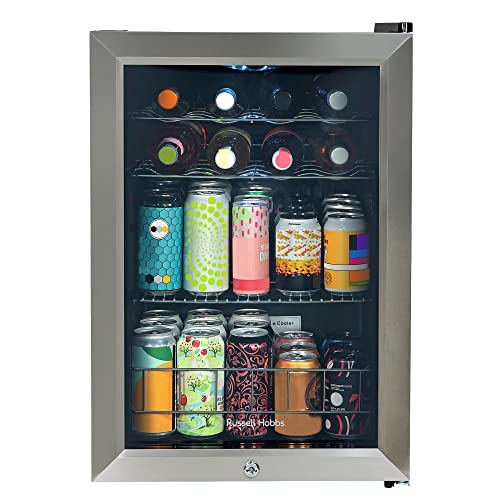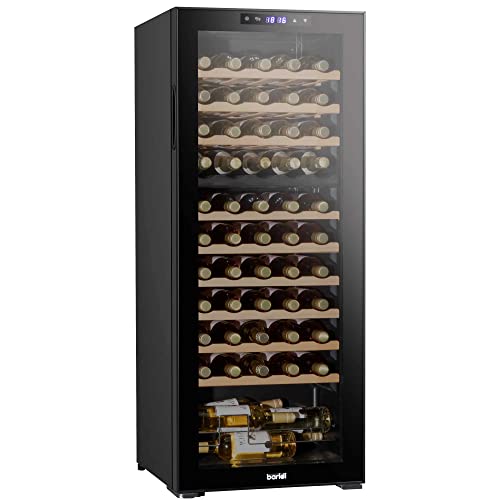 Choosing a Beverage and Wine Refrigerator
Choosing a Beverage and Wine Refrigerator
If you’re hosting guests or enjoying a quiet glass of wine during a meal This dual-zone refrigerator is the perfect solution to store and chill both wines and beers. It can be a freestanding wine fridge unit or built-in, and comes with an aesthetically seamless door that is able to fit into any space.
Although vibration is generally non-harmful, it can disturb a bottle’s sediment and cause complex chemical reactions that aren’t visible. In time, this may reduce esters and produce dull flavors.
Humidity Control
Humidity refers to the amount of water vapor present in the air, and it varies throughout the day based on a variety of factors. Temperature, precipitation, wind and other environmental conditions can drastically influence the humidity levels. Keeping humidity at optimal levels is important for a number of reasons. Humidity affects the weather patterns and indoor air, as well as wine storage. Many aromatic compounds in a wine are affected by variations in humidity. When humidity is excessively high, it could alter the balance of these compounds and alter the taste of the wine. A wine refrigerator can help keep the proper humidity level to preserve a bottle’s taste.
A wine refrigerator can prevent cork deterioration and ensure the proper seal. When humidity is too low, corks can dry out and let oxygen enter the bottle, which can accelerate the process of aging and tainting the wine’s taste. A wine refrigerator can help keep an average humidity of 55% to 75% to prevent this from occurring.
While wine cellars are designed for aging over time wine coolers also provide ideal storage conditions for beer and wines. These coolers usually have dedicated areas for beer bottles, so you can store your favorite craft beers or lagers right close to your preferred wines. These units are designed to regulate temperatures and humidity to avoid condensation, which could damage labels and packaging.
Most models include a hygrometer, which lets you monitor the humidity level in your wine cooler and adjust it to suit your needs. You can also utilize an humidifier to increase the humidity in your wine refrigerator.
If you choose to use a dehumidifier, make sure it is set up in a separate room from the wine fridge. This will ensure that the dehumidifier does not absorb any of the wines or beers that you are storing in the fridge. Controlling humidity is especially important if you plan to keep your wine for lengthy durations of time. In a short amount of time, you may not notice any changes in your wine. However, over months or years the absence of humidity can dramatically alter the taste of your cheap wine refrigerator.
Vibration Absorption
The vibrations inside the wine refrigerator may interfere with the natural aging process for the wines stored inside. Even minor vibrations can cause sediment to move in the bottle, triggering complex chemical reactions that will decrease esters and dull wine’s flavor over time. All La Sommeliere units have a vibration absorption system that minimizes the sound and tremors, allowing your wine to age in peace and efficiently.
Aside from the fact that wine coolers generally emit less sound than standard refrigerators, they’re susceptible to noise issues due to the arrangement of refrigerant circuits and fans that are found in the majority of units. It is for this reason that it is important to follow the guidelines for clearance when installing your wine cooler, and to place the unit in a quiet area away from other sources of disturbance.
Additionally, it is also recommended to regularly clean your wine cooler with an anti-abrasive cleaner and allow the unit to “air out” before filling it with bottles. This will reduce the amount of dust or dirt that can accumulate in the air vents.
If you notice that your wine fridge is making excessive noises, it could be due to a problem with the compressor or electric fan. The compressor is typically located in the back of the wine refrigerator under cabinet fridge. If it is positioned unevenly or bumps into something behind it, it may shake itself free from its rubber mounts which will cause loud humming noises.
The compressor wine cooler works as a normal refrigerator, electronically compressing air molecules that lowers their temperature, and then blowing them throughout the interior of the refrigerator. This kind of cooling is more efficient in energy use than other types of cooling such as evaporator and frost-free refrigerators. Compressor wine coolers are noisy and require more frequent maintenance. Many people opt for thermoelectric wine chillers that do not use a compressor.
Temperature Control
Like wine, beer has specific temperatures that allow it to keep its optimal flavor. It is crucial to choose the right wine and beverage refrigerator that has adjustable temperature controls. This will allow you to store your drinks at the ideal temperature for storage and serving for each style. You can also find dual-zone models that offer an additional temperature zone for wine bottles and separate temperature zones for other beverages, such as beer.
In general, the majority of beer types prefer to be served colder than wine. The ideal temperature for serving a particular style will depend on the style and how it was made. For example, wheat beers and pilsners should be enjoyed between 40 and 50 degrees Fahrenheit, while IPAs, sours, barleywines, and stronger ales should be served between 50-55 degrees Fahrenheit. The beer and wine refrigerator (Read More In this article) that is left to warm too much will give it an unpleasant “skunk” aroma that detracts from the overall drinking experience.
When it comes to wine, you’ll want to choose a refrigerator with a temperature range that can accommodate your most loved whites, reds and sparkling wines. Some wine fridges have humidity-control features to stop oxidation and keep the corks in good order. Some are even equipped with UV glass to block sunlight, which helps to preserve the wine’s color and protect it from premature aging.
A refrigerator’s temperature control system can be powered by either thermoelectric cooling or compressor technology. Compressor-powered units utilize vapor compression to lower temperatures inside the wine refrigerator, while thermoelectric models depend on electronic convection fans that circulate cool air through the refrigerator. For the best results, most fridges combine these two technologies.
If you’re looking to purchase a beverage and wine fridge that uses compressor technology, you should look for one with vibration-absorbing shock pads. This is because the rumble generated by compressors can interfere with the normal process of maturing wine and accelerate oxidation.
You can buy a refrigerator designed for wine. However, it might be more economical to buy an ordinary fridge or a regular fridge with a spacious interior and shelves that can be moved. You can then modify the space to accommodate the various varieties of wine, beer as well as other bottles and cans.
Storage Options
Consider a cooler for your drinks if you like to host parties. These refrigerators can be used to store bottles and cans of wine, beer and other beverages that are ice cold, like soda and water. They’re available in freestanding and built-in versions. A built-in model can be placed under the cabinet wine fridge counters or inside cabinets in kitchens with a little space.
Refrigerators of both types come in various styles and sizes, making them ideal for homes with a variety of. Make sure you choose models with sliding shelves that make it easier to locate your preferred beverages and wines. Some refrigerators feature soft LED lighting to showcase your collection with a soft, gentle glow. Some refrigerators even have the option of controlling humidity. This feature can stop the formation of frost inside your wine and beer bottles so you can enjoy them with no worries.
A refrigerator with two zones will allow you to store your favorite wines at their optimal serving temperatures. You can also store craft beers in the separate zones, because it is able to maintain similar temperatures to the wine bottle. A dual zone wine and beer refrigerator can also store larger bottles of spirits or beer than a regular household fridge.
Keep your beer and wine in a place that has adequate lighting protection. The right conditions will extend their lifespan. The refrigerator should also be kept free of dust, odors and other debris that could affect the taste of your drinks over time.
You should consider a cellar fridge in case you are looking to store your entire collection and preserve its value. This type of refrigerator is made to be used for long-term storage. It operates at a temperature that is slightly higher than a wine fridge, which lets your bottles get older and develop their best flavor. A cellar refrigerator also includes a humidifier to maintain the proper humidity level. This helps ensure that the cork remains dry and inert, preventing external air and notes from refrigerator food from getting into the wine bottle and degrading its quality over time.
